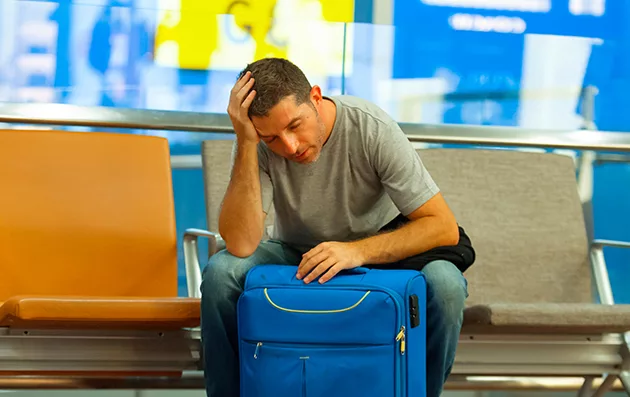
A summer getaway is something that most of us look forward to and dream about for months. That being said, when you go to other countries far from home, you may bring back more than simply souvenirs with you when you return. You could be a victim of jet lag.
When traveling across several time zones, some people experience a temporary disruption to their sleep cycle known as jet lag. Because of this, their circadian rhythm—the internal body clock—will be out of whack with the local time at their destination. Tiredness, inattention, insomnia, irritability, and gastrointestinal problems are some of the symptoms that might emerge from this disruption. Here are some tips to avoid this when traveling:
1. Start by modifying your sleep routine. If you can, adjust your sleep routine a little bit before your vacation to coincide with the local time. No matter what way you’re traveling, be sure to go to bed an hour sooner or get up an hour later every day. Reverse this order for the trip back home.
2. Keep yourself hydrated. Exacerbating jet lag symptoms is dehydration. Be sure to keep hydrated before, during, and after your flight by drinking lots of water. You may dehydrate yourself and have trouble sleeping if you drink alcohol and consume caffeine.
3. Make sure you get enough sunlight. You can control your internal clock with the aid of natural light. To ease your body into the new time zone, go for a walk or bike ride throughout the day when you arrive at your destination.
4. Make smart use of short naps. If you’re feeling very exhausted when you get there, take a little nap (around 20 to 30 minutes) to rejuvenate yourself without compromising your nighttime sleep. Your sleep routine will be thrown off if you take extended naps.
5. Be careful when using sleeping pills. Melatonin pills and other sleep aids might help your body’s circadian rhythms get back on track. Before utilizing any supplements, it is recommended to consult with a healthcare expert. If you’re having trouble sleeping on the plane or at your destination, try using earplugs, an eye mask, or a white noise app.
6. Make light and healthy food choices. Loading up on carbs could make you feel lethargic. Choose healthy, digestible meals that aren’t heavy. To aid your body’s adaptation to the new schedule, try eating at the local mealtimes.
7. Get up and move about while in flight. Sedentary lifestyles amplify the effects of jet lag. To alleviate stiffness and increase circulation, take short walks about the cabin every so often and perform gentle stretching exercises while seated.
8. Get used to the local time as soon as possible when you get there. No matter how much resistance you feel at first, you must adjust your eating and sleeping schedules to fit the new time zone.
9. Keep moving. To fight exhaustion and restore your internal clock, try some little activity like walking or moderate stretching. Getting some exercise will improve your mood and give you more energy, which will make adjusting much simpler.
10. Avoid electronic screens before bedtime. The blue light from electronic devices may prevent your body from making the sleep hormone melatonin, so it’s best to avoid using them in the hours leading up to bedtime. Choose something more soothing, such as reading a book or listening to music that soothes the mind.
By following these tips, you can minimize the effects of jet lag and make the most of your travels, arriving at your destination feeling refreshed and ready to explore. If you continue to have symptoms from Jet Lag, please contact one of our doctors for a short assessment to ensure that nothing significant has been going on with you.


